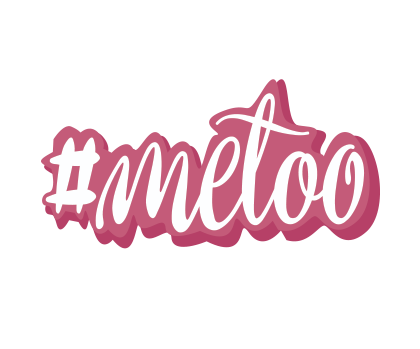Sexual misconduct exposed in Hollywood, but rampant everywhere
In 2016, three students were sexually assaulted on St. Joe’s campus, according to the Annual Security Report that was carried out as a part of the Clery Act.
That number is three too many.
Sexual assault and misconduct are poisons pervasive in our communities, infecting us with toxic rape culture and effectively contaminating the fabric of society. Statistics show that on college campuses women are disproportionately targeted: “23.1 percent of females and 5.4 percent of males experience rape or sexual assault through physical force, violence, or incapacitation,” according to Rape, Abuse and Incest National Network (RAINN). And this statistic covers only sexual assault. For the three students listed in the Clery Act report, more may have chosen not to come forward in fear of reliving their traumatic experiences, coping with survivor guilt or fear of their assailants.
College-age women often live under the male gaze and feel pressured to “measure up”: some dress scantily-clad, go out on weekend nights, drink with boys and hook up. If women stray from the letter of this law, they may be considered prude or virginal. If they follow it too closely, they risk slut-shaming; in the worst case scenario, those who are sexually assaulted are blamed for their predators’ crimes because of what they were or how they acted. On the other side, male students are often expected to drink excessively, “man up,” and sexually score, always leaving parties and events with a woman on their arm. But women consistently suffer more from these expectations and their downfalls.
As a third-year Resident Assistant (RA), former editor for The Hawk and second year Writing Center tutor, I’ve encountered a multitude of students and their stories both on and off campus that reflect these societal patterns and destructive “norms.” As an RA especially, it’s difficult to watch theories and statistics from summer training play out in real time in students’ lives. The job itself shows you more than surface level fun and college antics; it shows you rawness and truth up-close, like the recent #MeToo movement. The numbers don’t lie; for potential predators and assailants, college hookup culture is the gateway drug to harder narcotics. #MeToo reveals how numb society has become to sexual misconduct.
In lieu of sexual misconduct allegations against Harvey Weinstein, the social media campaign, originated in 2006 and propelled by actress Alyssa Milano on Twitter, has taken off, shedding light on an issue often hidden in darkness. As of Oct. 19, over 50 women shared sexual misconduct allegations against Weinstein, as CNN reported. In Gwyneth Paltrow’s testimony on Weinstein, she divulged that: “‘I was a kid, I was signed up, I was petrified [of Weinstein].’” Paltrow was only 22 years old at the time. As a senior graduating this spring and 21 years old, I cannot help but think of the male-dominated professional circles I’ll be entering and how exposed I too will feel in whichever field I choose to pursue.
And, in general, the world is run by men. In Hollywood, women account for 19 percent of Hollywood producers and only 4 percent of directors of the top 100 grossing films in 2016. The power dynamic is evident in the numbers alone.
As is usually the case with abuse, there are the perpetrators and then there are the bystanders—onlookers who turn away. Famous director Quentin Tarantino was one of these bystanders. In a Boston Globe article covering Tarantino’s recent remarks, Jodi Kantor writes, “Though he [Tarantino] continued to hear alarming stories over the years, he proceeded to make film after film with Weinstein, his greatest champion—a decision he now regrets.” But in a country where sexual assault occurs every 98 seconds, regret is simply not enough.
Doing nothing as a bystander breeds tolerance for the exploitation of women and male ownership of their bodies. Consequently, women feel forced to hide in the shadows and suffer in silence, fearful of losing their careers and reputations. They grieve quietly while often men face no charges. Tarantino’s regret reveals how rape culture, and the patriarchal values that fuel it, are embedded in our communities, like Hawk Hill and, eventually, our workplaces.
Rape culture is the hand of a strange man that lingers on her waist at the bar; it is the chirp of a male driver that catcalls an unknown woman’s body across City Avenue; it is the drunk boy who grumbles as he leaves the party alone; it is the Tinder boy that tells his match she looks like the girl he roofied last night; it is the man that feels entitled to say her haircut makes her look like a dyke. For some, it is the man who does not ask her permission as he pushes against her; it is the partner who sends 50 text messages and asks “where are you?” every day and every hour; it is the silent screams of survivors as their assaulters walk free. At the end of the day, we are all affected.
Even if you don’t believe that, believe this: when one of us is assaulted, we all are. It’s time to start acting like it.

































Marie Kelly-Tralies • Nov 4, 2017 at 7:40 am
Raising ones awareness and uses ones voice is a start in changing an element in our society that must be made unacceptable and nothing less–one case is to many.